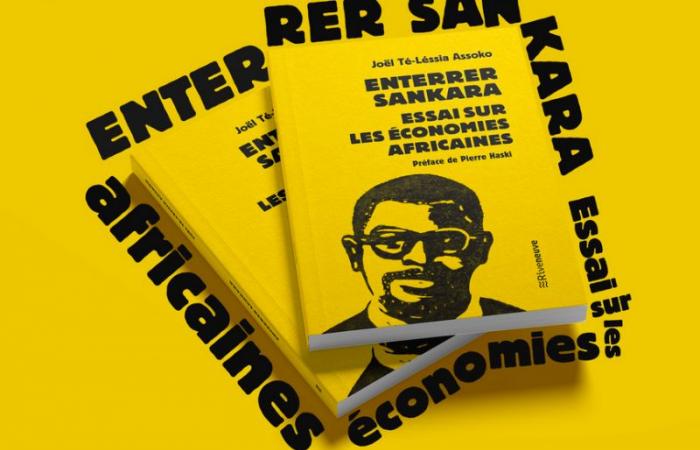In a book as hard and eruding, Joël Té-Lessia Assoko, an economic journalist, questions the heritage of Thomas Sankara and other African thinkers, believing that they convey economic myths harmful to the development of the continent. Entitled “Entering Sankara, testing on African economies”, this opus, the first in the “yellow nugget” collection published by Riveneuve, already arouses controversy, according to the South Daily site.
Although the author specifies on the back cover that his essay is not a pamphlet, he does not hesitate to question the economic policies of the famous Burkinabè revolutionary, Thomas Sankara. Using encrypted data, Assoko revisits the economic strategies and the sometimes contradictory choices of the Burkinabè captain, depending on only four years. Sankara is described as a myth of “economic heresies”, although its health and education initiatives are recognized as innovative. Regarding the author, Sud Quotidien reports that the installation of the idea of ”revolution” by Sankara is a cul-de-sac, according to Assoko.
Joël Té-Lessia Assoko expands his criticism to other influential African intellectuals, such as Kako Nubukpo, Felwine Sarr, Achille Mbembe and Célestin Monga. He criticizes them for promoting ideas he considers utopians and of promoting a tendency to “apting on oneself”. According to the South Daily site, Assoko says: “When we highlight new ways of thinking about humans, thinking about economics, is lying to Africa and lying to oneself. »»
This book is published while the influence of Sankara is experiencing a revival, with figures like the Senegalese president Bassirou Diomaye and Prime Minister Ousmane Sonko, as well as various military junta in the Sahel, who advocate the end of dependence on the West and value economic sovereignism. However, the author regrets that these regimes focus on political emancipation by neglecting crucial economic-technical questions.
In conclusion, in an analysis relayed by our colleagues from South Daily, Assoko stresses that African emergence depends above all on a significant and continuous improvement in productivity. This 151 -page book may well shake the established convictions concerning the economic development of the continent.






